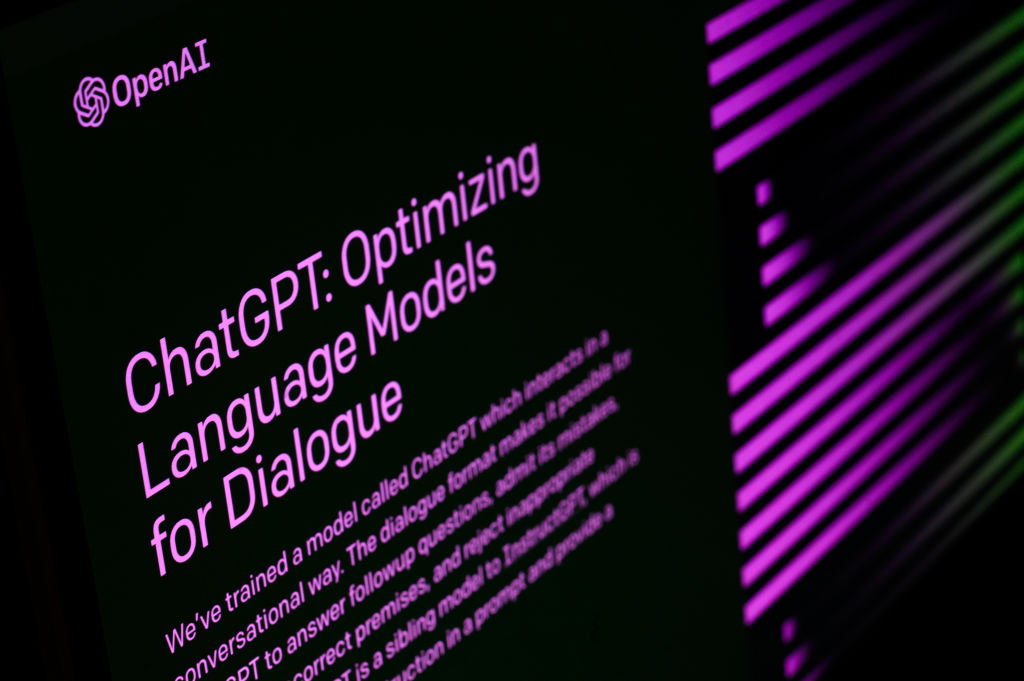AI like ChatGPT and Bard are erasing women as it shows its developers’ bias

If artificial intelligence doesn’t know the answer, it simply makes up plausible response, but it automates the prejudices of our societies and delivers them with the confidence of a crypto salesman, writes Susie Alegre
Google’s Bard launched last week with the offer to start writing your novel for you. It made my creative heart sink at the latest iteration of AI sucking the joy out of life. I don’t need Bard to start my novel, I have already started it, because I am a writer and, whether published or unpublished, I can’t help myself.
In my book, ‘Freedom to Think’, I explored the ways that information we receive through technological tools affects not only the way we see ourselves, but the way the world sees us, if it sees us at all. A year on from publication, I decided to check how things are going by asking ChatGPT my existential truth “Who is Susie Alegre?”
Like most people, ChatGPT had never heard of me. My ego was bruised despite my PhD by Prior Publication based on publicly available articles, chapters and books dating back to 1998 and writing an FT book of the year 2022. But I accepted that the main training data cut off date was September 2021, before my book came out. So I asked it “Who wrote Freedom to Think?” And that is when it became truly bizarre.
It gave me a pretty accurate synopsis of my book but told me it had been written by Australian biologist Jeremy Griffiths. Suffering from a wave of imposter syndrome, I checked. He hadn’t written it, though he had written a book called “Freedom” so it was plausible. ChatGPT gave me twenty names in total, none of them me, and only one of them a woman – Dr. Bobbie Stevens, who presumably slipped through the net because both her names could plausibly be a man’s name. None of them wrote a book called “Freedom to Think” despite ChatGPT’s fictitious citations, and some of them don’t appear to exist at all, if Google is to be believed.
When Dr. Jess Wade discovered that only 20 per cent of the biographies of notable people on Wikipedia were women, she started a campaign to write illustrious women scientists and scientists of colour into our collective online consciousness.
Since then, she has created over 1,700 new pages highlighting women and people of colour in STEM. Wikipedia is one of the sources of training data for ChatGPT. But while the incredible potential of AI to boost human endeavour is being hailed around the world, no one is asking why the task of redressing the imbalance in the way the world sees women, is left to one woman, writing for free in her spare time while holding down a full time job in STEM. ChatGPT talks the talk if you ask it about gender bias, but its creators have not put in the time to walk the walk as Dr. Wade has.
I don’t have a Wikipedia page and my time with ChatGPT had made me start to doubt my existence. So finally I asked it to write a paragraph on freedom of thought “in the style of Susie Alegre”. That it could do. I may not exist, but my intellectual work can still be mimicked by an AI. This is simply automated intellectual asset stripping.
Whatever you ask an AI Large Language Model, it will make plausible stuff up. It automates the prejudices of our societies and delivers them with the confidence of a crypto salesman.
Sold as a way to improve efficiency and reduce costs, this generation of generative AI is an incredibly energy hungry method of destroying human creativity in already under-valued professions. And with Google advertising for a “prompt engineer” with a salary of between $250,000 and $335,000, it doesn’t seem like much of a bargain.
In December, the Society Of Authors revealed that median author earnings in the UK are £7,000, a drop of over 60 per cent since 2006 in real terms with male writers typically earning 41 per cent more than women. You don’t get much more value for money than women writers – we could, at least, be credited with our own work.
